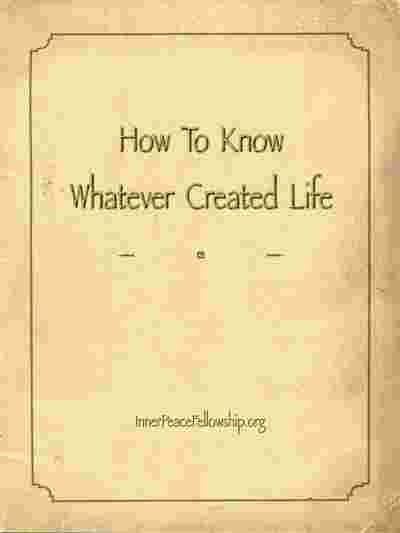Adi Shankara - Advaita Vedanta
Advaita Vedanta is a three thousand year old school of Hindu philosophy and spiritual practices. The term Advaita first appeared as the Sanskrit term अद्वैत वेदान्त, which means not-two. Advaita teaches that moksha or freedom (sometimes translated as liberation, enlightenment, spiritual awakening or self-realization) can be achieved in your lifetime. The most prominent exponent of Advaita was Adi Shankara who lived around 800 AD. Today some call Advaita non-duality or direct inquiry. (Wikipedia)
This page discusses what freedom means in Advaita and how to achieve that freedom.
Freedom
What is freedom in Advaita? Is it freedom from death, from illusion, from suffering, from bad luck, from this world?
In our experience freedom in Advaita means freedom from thoughts. Each of us lives two lives. We live the life in our thoughts and we live the life we experience at present. Those two lives are the duality of Advaita and freedom from that duality – the not-two of Advaita – is when thoughts are absent and our experience of the present is all that remains, which is the oneness of Advaita.
Achieving Freedom
So how do you achieve that freedom? You achieve that freedom by shifting the balance from living your life as thoughts to living your life more in the present.
That balance towards freedom is not shifted through words and teachings. Putting more words into your head does not decrease thoughts. No, you shift that balance by training yourself to have less thoughts.
Meditating regularly is one way to shift that balance. In meditation thoughts tend to decrease and you become more familiar with the silence that remains – with the absence of thoughts that remains. And by meditating regularly you become more and more familiar with the absence of thoughts, which then helps you recognize and expand the absence of thoughts in everyday life.
Spending time alone in nature is another way to decrease thoughts and shift that balance. Take long walks alone in the forests, fields or parks. Better yet, put on a backpack, walk deep into nature, and spend many days there alone.
Meditation and time alone in nature may not shift that balance for you however. For you that balance may shift through gardening, dancing, yoga, singing, tai chi, sports, making music, knitting, etc. You are the only one who can know what shifts that balance for you.
Adi Shankara, the most prominent exponent of Advaita Vedanta, said around 800 AD:
“A clear vision of [freedom] may be obtained only through our own eyes, when they have been opened by insight – never through the eyes of some other seer. Through our own eyes we learn what the moon looks like: how could we learn this through the eyes of others?”
Viveka-Chudamani; Isherwood,
Again, freedom is not achieved by reading or listening to words about Advaita, non-duality, direct inquiry or unity consciousness. In fact such words become actual barriers to achieving freedom because whenever you do experience the absence of thoughts you might dismiss it as irrelevant to achieving freedom because your experience of the absence of thoughts does not match up with any of the words you have learned.
That the absence of thoughts cannot be described or expressed with words is central to achieving freedom. Shankara said:
“He who seeks [freedom] must meditate upon it in the shrine of his heart. The intellect cannot understand it. It is out of the reach of thought. It is beyond the expression of speech.” Ibid; p. 75
Those who believe that Advaita’s freedom can be achieved through words also tend to believe that that freedom will reveal things that are hidden such as the true nature of consciousness, the true nature of the self, their oneness with the universe or witnessing sleep. However when some people first start to notice the absence of thoughts it brings no such revelations. Nothing hidden is revealed and everything remains the same, except perhaps that life is more pleasant. So you dismiss your glimpses of the absence of thoughts as irrelevant to achieving freedom since the absence of thoughts revealed nothing that the words you learned said they would. So you continue on, endlessly seeking freedom.
In summary, you navigate your way to freedom on your own, you avoid words and you trust yourself. That’s it.
Good luck.
After Thoughts
Once the absence of thoughts is established in your life you might notice that:
When thoughts are absent the present seems eternal.
When thoughts are absent your self that lives in thoughts disappears and you are what smells the honeysuckle.
Photo: relaxing sadhu, wood & paint, 19th century; Uttar Pradesh State Museum, Lucknow; anonymous












